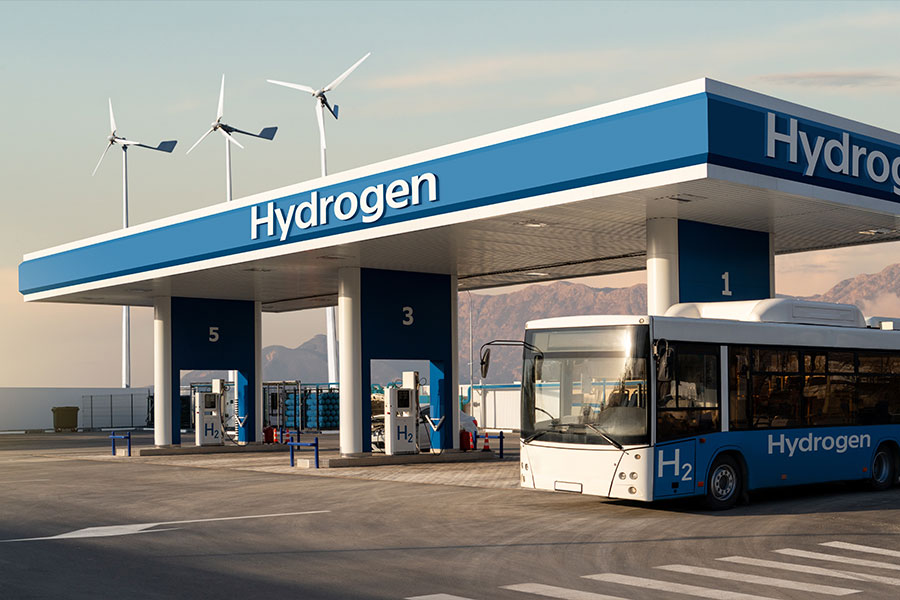Following the EU's decision that only climate-neutral new vehicles can be sold from 2035, the future of the combustion engine appears to be in question. But companies such as Porsche or Toyota have not yet written off the combustion engine despite the so-called "de facto end" for combustion vehicles.
One way of continuing to run the time-honoured combustion engine (almost) emission-free is the use of e-fuels. Although the synthetic fuels are far from being used extensively at the moment, promising initiatives are working on research and further development. Another option is using hydrogen as a fuel. An ancient concept.
François Isaac de Rivaz from France became the first person to use a car with hydrogen combustion engine in 1807. Almost 200 years later - in 2000, to be precise - BMW built 15 prototypes of a vehicle with hydrogen engine based on the BMW 7 series. In 2013, Aston Martin made the headlines when the British team used a sports car with a hydrogen hybrid system - i.e. a system that can be operated with both conventional fuel and pure hydrogen, in the 24-hour race at the Nürburgring.
Particularly in the commercial vehicle sector, combustion engines powered by hydrogen are being worked on all over the world. But in the passenger car sector, the technology has never been able to win people over. It never progressed beyond sporadic development and test projects. But the immense political pressure on combustion engines could now drive developments forward. Porsche and Toyota, two big players in international automotive engineering, have now presented corresponding hydrogen projects.
Porsche tests hydrogen combustion engines at the Nürburgring
Currently, hydrogen engines for commercial vehicles are primarily used with a relatively low specific output of around 50 kW per litre of displacement, states Porsche. "This is not enough for passenger cars. That's why we developed a hydrogen combustion engine as a study that provides power and torque on a level with current high-performance petrol engines. At the same time, our aim was to achieve low consumption and keep emissions at ambient air level," says Vincenzo Bevilacqua, Head of Engine Simulation at Porsche Engineering. "The starting point for our tests was an existing 4.4 litre, eight-cylinder petrol engine - or rather, its digital data record, as we carried out the entire study virtually via simulations."
With a power output of around 440 kW, the hydrogen engine is on a level with the original combustion engine. The turbocharger system mainly had to be modified to ensure clean combustion. The luxury class prototype, which weighed a very heavy 2.65 tons, completed the 20.8 kilometres of the Nürburgring-Nordschleife circuit in a respectable 8:20 minutes. So the Porsche wasn't exactly slow. But other results were more important than the lap time.
Hydrogen in motor sport
"The results showed that the nitrogen oxide emissions are significantly below the currently discussed limits of the Euro 7 standard and are close to zero over the entire speed range," states Matthias Böger, Engine Simulation Development Engineer at Porsche Engineering. "The study has provided us with valuable findings in the development of high-performance hydrogen engines and complements our virtual development chain with models and methods specially for hydrogen," explains Bevilacqua. The tests also showed that the costs of a hydrogen drive in series production could be comparable to those of a petrol engine.
Toyota is also currently working on a hydrogen project: A Toyota GR Yaris "H2" with hydrogen combustion engine recently completed the first demonstration runs in Belgium during the World Rally Championship (WRC). The new drive was developed for the GR Corolla H2, which had already taken part in the Asian long-distance championship, Super-Taikyu, for example. Here too, the aim is to investigate possible uses in series production in the particularly demanding motor sport environment.
In terms of the future of the combustion engine, we can only hope that these two projects are the first of many…

